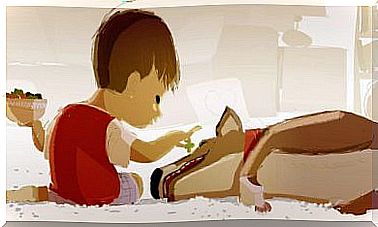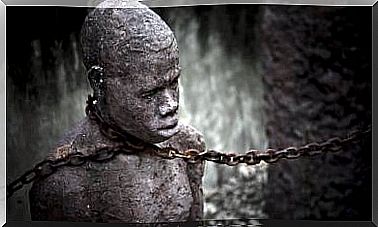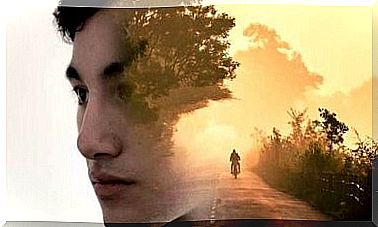Persepolis, The Other Truth
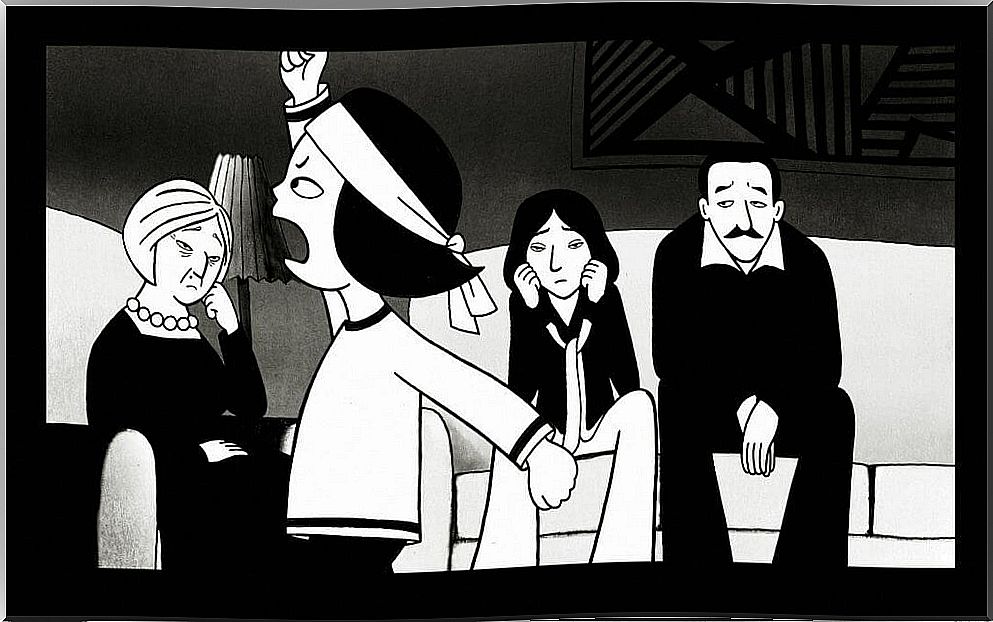
What do we know in the West about the rest of the world? A deep analysis is not necessary to identify in our environment a very marked tendency to ignore what happens far from the Western world. Thus, we could say that there is an almost total ignorance of the reality of other countries, which would give rise to a good number of prejudices. The West, for most of our retinas, is the positive, “the good,” the example to follow. Along these lines, Marjane Satrapi captured this reality so unknown to many in her autobiographical work Persepolis.
We are talking about a graphic novel in which he narrates the changes suffered in his country, Iran, and in his own person since the late 70s. Persepolis was brought to the big screen in 2007, an adaptation that received critical acclaim at the Cannes Film Festival. Marjane was still a child when the 1979 Islamic Revolution began, she belonged to a wealthy family with a progressive ideology, attended the French Lyceum in Tehran and subsequently continued her studies in Vienna.
The story, told from Marjane’s point of view, supposes the discovery of a situation of which we are totally unknown in the West. It shows us how Iranian society evolved, how it acquired the Islamist character that we know today, the consequences of the war, and calls into question the Western point of view.
Despite starting as the story of a girl, the seriousness is already evident in the absence of color, being a novel in black and white. As Marjane grows older and the revolution advances, Persepolis acquires a more dramatic, more tragic tone. Marjane becomes aware of what is happening in her country and we, as readers or viewers, realize how little we know and how much we still have to learn.
From the innocence of a girl, we see the cruelty of humanity, the dangerousness of ideas, the pain of repression and the ups and downs of a revolution. Persepolis opens up the truth behind history, the history lived by the people and not by political or war leaders. A non-universal truth, since it is not far from subjectivity; after all, it is a point of view, an individual reality: Marjane’s.
Persepolis, discovering another reality
The Iran of the late 70s that Marjane presents to us is very different from what we could imagine, because it is quite similar to any European country. Marjane’s family is progressive, they believe in revolution and the fall of the Shah; none of the women in her environment wears a veil, they all go to parties.
Although Marjane has always been in contact with religion, she attends a secular school where boys and girls go to class together. Marjane’s family belongs to a wealthy class: the reality that it draws us, surely, does not correspond to that of the majority of the population.
Marjane, at first, does not understand the revolution, at school she has been taught that the Shah was chosen by God and does not understand why his family does not support him; For this reason, he is interested in knowing a little more about the history of his ancestors. The revolution was a promise of freedom, of ending an era of hereditary successions and that, at last, the republic would triumph. However, it was not as many expected and it ended up taking a course very different from the original one.
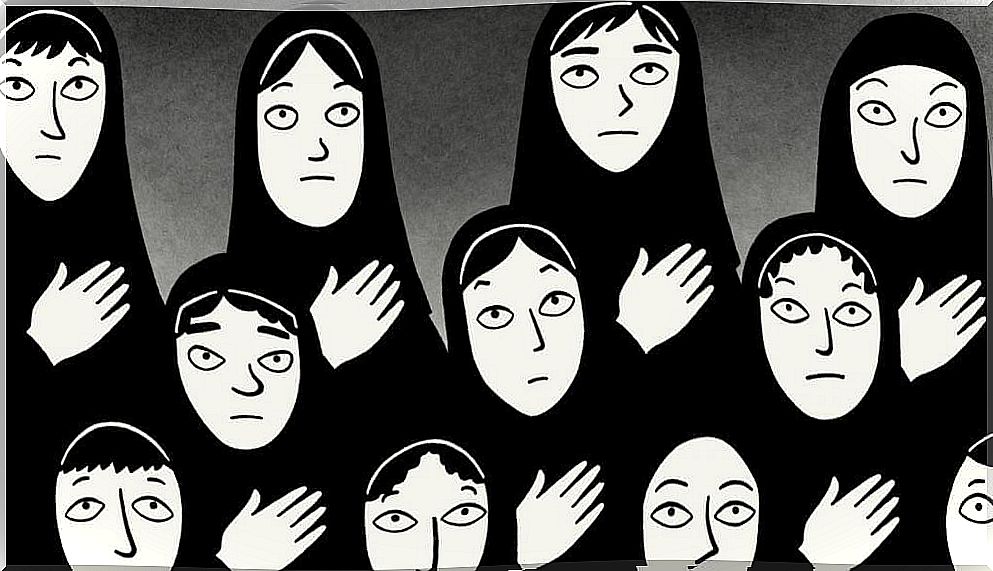
Despite her young age, Marjane begins to support the revolution, documents and reads countless books, listens to her family’s stories, etc. But what really makes him decide to support the revolutionaries is the class difference, something that even his family seemed to overlook.
The Satrapi family lives with a maid, a young woman of very humble origin, illiterate and who, from a very young age, had to take care of Marjane. The two grew up very close and Marjane always felt sorry that she did not eat with her family; the revolution means for Marjane the end of social classes, the equality of all people. Being a girl, she has no prejudices and her vision is more open than that of her parents, she feels ashamed to ride in her father’s Cadillac while other children have to work.
The revolution took an unexpected turn and became an Islamic revolution ; fear began to seize a large part of the population and Marjane had to say goodbye to some friends and family who decided to emigrate to other countries. Soon the schools were no longer secular and coeducational and girls were forced to wear the veil.
All these changes, together with the Iran-Iraq war, made Marjane lose her childhood innocence very soon, that very soon she had to travel to Europe in order to continue her studies. His privileged social position and his years of study at a French high school made it easier for him to attend a French school in Vienna.
Arrival in Europe
The arrival in Europe was not easy, he did not know the language and was escaping from a war. The more progressive seemed to show a certain fascination with Marjane’s story, but it was a selfish fascination, focused on appearances and satisfying their own curiosity, never straying from their European comfort. At the same time, he had to face critical gazes from the most conservative and reluctant to learn about other cultures, even lying about his nationality.
Marjane didn’t fit in in Europe and she returned to her home country, but she didn’t fit there either. He had not experienced the worst of the war, he had not experienced the suffering of his neighbors and friends, his problems had been “westernized”. He graduated in fine arts and tried to establish his life again in Tehran, although without much success, for which he later moved to Paris. In Persepolis , he expressed his own perspective of the revolution, of war, of emigration and subsequent adaptation to a country that is not his own, to a culture and people that did not facilitate that integration either.
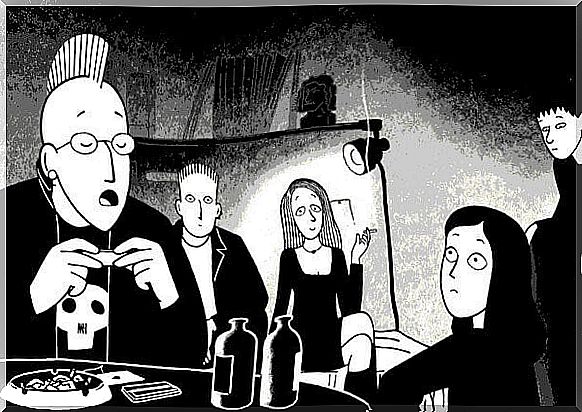
In Europe, she will try to find people who share her ideals, however, she will come across a different reality than the one she knew and will discover that these ideas are defended in a very different way, in a much more superficial way and from comfort.
Satrapi’s vision in Persepolis is not objective, since it is an autobiographical work, but the truth is that it proposes a reflection: there is a total ignorance from the West towards the rest of the world, very well-established prejudices and we tend to criticize from the ignorance.
Something that is not so different in the world from which Marjane comes, because her parents, despite their progressive ideas, supported those who ended their freedoms and preached equality when they had a maid and infinite privileges.
Satrapi questions us all from the attentive gaze of a girl; Persepolis makes up this Bildungsroman (learning novel) from which we can all draw a lesson, an evolution. Just like Marjane herself, who forms her opinion as she grows and understands the world: from childhood utopia to stark reality. Perhaps, the world would be easier if we all kept a bit of that childlike innocence that we have been losing.
